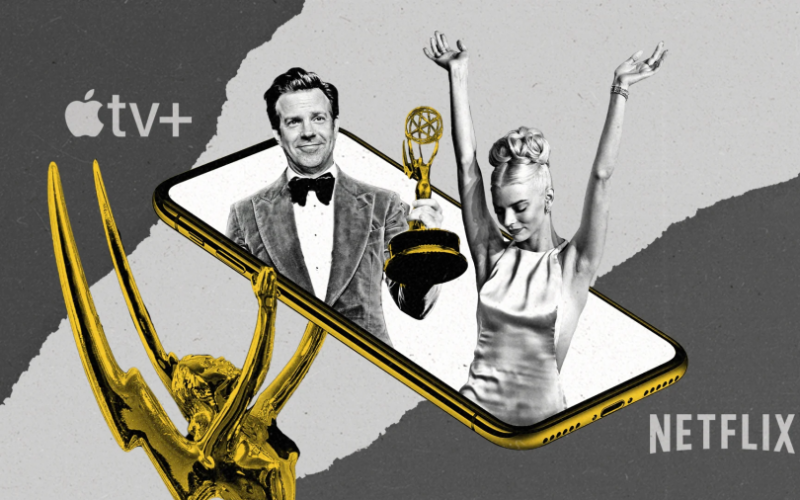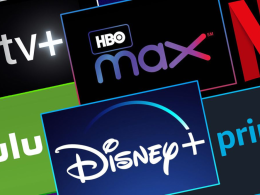Introduction
In recent years, the landscape of the entertainment industry has undergone a seismic shift, primarily driven by the rise of streaming platforms. These digital services have not only revolutionized how audiences consume content but have also had a profound impact on the traditional mechanisms of film awards. This article delves into the multifaceted influence of streaming platforms on film awards, exploring the challenges and opportunities they present.
The Rise of Streaming Platforms

-
Historical Context
The concept of streaming content over the internet is not new, but its widespread adoption is a relatively recent phenomenon. In the early 2000s, companies like Netflix began to transition from DVD rental services to digital streaming. By the 2010s, streaming had become the dominant form of media consumption, with platforms like Amazon Prime Video, Hulu, and Disney+ entering the fray.
-
Market Penetration
Streaming platforms have experienced exponential growth, with millions of subscribers worldwide. This growth has been fueled by the convenience of on-demand content, a vast library of films and TV shows, and the ability to stream on multiple devices. The COVID-19 pandemic further accelerated this trend, as traditional theaters were forced to close, and audiences turned to digital alternatives.
Impact on Film Production

-
Democratization of Filmmaking
One of the most significant impacts of streaming platforms is the democratization of filmmaking. Traditional studios often operate under stringent financial and creative constraints, limiting the diversity of voices and stories. In contrast, streaming platforms have provided a more inclusive space for filmmakers from various backgrounds to showcase their work.
-
Investment in Original Content
Streaming giants like Netflix and Amazon have heavily invested in original content, producing high-quality films and series that rival those of traditional studios. This investment has led to the creation of critically acclaimed films such as “Roma,” “The Irishman,” and “Manchester by the Sea,” which have garnered significant attention during award seasons.
Influence on Film Awards

-
Changing Eligibility Criteria
The rise of streaming platforms has forced award bodies to reconsider their eligibility criteria. Traditionally, films needed a theatrical release to qualify for major awards. However, as streaming became more prevalent, organizations like the Academy of Motion Picture Arts and Sciences (AMPAS) had to adapt. In 2020, the Oscars temporarily relaxed their rules to allow films that had planned theatrical releases but were forced to debut on streaming platforms due to the pandemic.
-
Increased Competition
The influx of high-quality content from streaming platforms has intensified competition during award seasons. Films produced by these platforms often feature top-tier talent, both in front of and behind the camera. This increased competition has raised the bar for all contenders, pushing traditional studios to innovate and improve their offerings.
-
Recognition and Wins
Streaming platforms have not only competed but have also succeeded in securing major awards. Netflix, for instance, has seen its films nominated for and winning prestigious awards, including Oscars, Golden Globes, and BAFTAs. This recognition has validated the quality of content produced by streaming services and has challenged the long-held dominance of traditional studios.
Challenges and Controversies

-
Resistance from Traditionalists
Despite the success of streaming platforms, there has been resistance from some quarters of the industry. Traditionalists argue that the theatrical experience is an integral part of cinema and that films released primarily on streaming platforms should not be eligible for major awards. This debate has led to ongoing discussions about the future of film distribution and the role of streaming in the industry.
-
Quality vs. Quantity
Another challenge posed by streaming platforms is the sheer volume of content they produce. While this abundance provides opportunities for diverse storytelling, it also raises concerns about quality control. Critics argue that the focus on quantity can sometimes lead to a dilution of quality, making it harder for truly exceptional films to stand out.
The Future of Film Awards

-
Hybrid Models
As the industry continues to evolve, a hybrid model of film distribution and awards eligibility is likely to emerge. This model would recognize the value of both theatrical releases and digital streaming, ensuring that all high-quality films have a fair chance of being considered for awards.
-
Continued Innovation
The influence of streaming platforms on film awards is likely to drive continued innovation in the industry. Traditional studios may adopt new strategies to compete with digital giants, leading to a more dynamic and diverse cinematic landscape.
-
Global Reach
Streaming platforms have a global reach, allowing films to be seen by audiences worldwide. This international exposure can increase the chances of films being recognized by award bodies, leading to a more inclusive and representative selection of nominees and winners.
Conclusion
The influence of streaming platforms on film awards is undeniable. These digital services have democratized filmmaking, increased competition, and challenged traditional norms. While there are challenges and controversies, the overall impact has been positive, driving innovation and inclusivity in the industry. As streaming continues to grow, it will be fascinating to see how the relationship between these platforms and film awards evolves, shaping the future of cinema for years to come.










